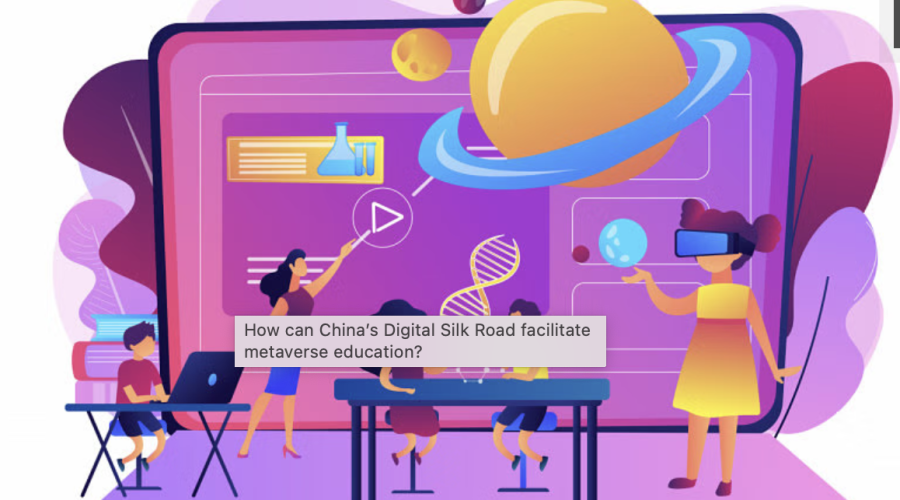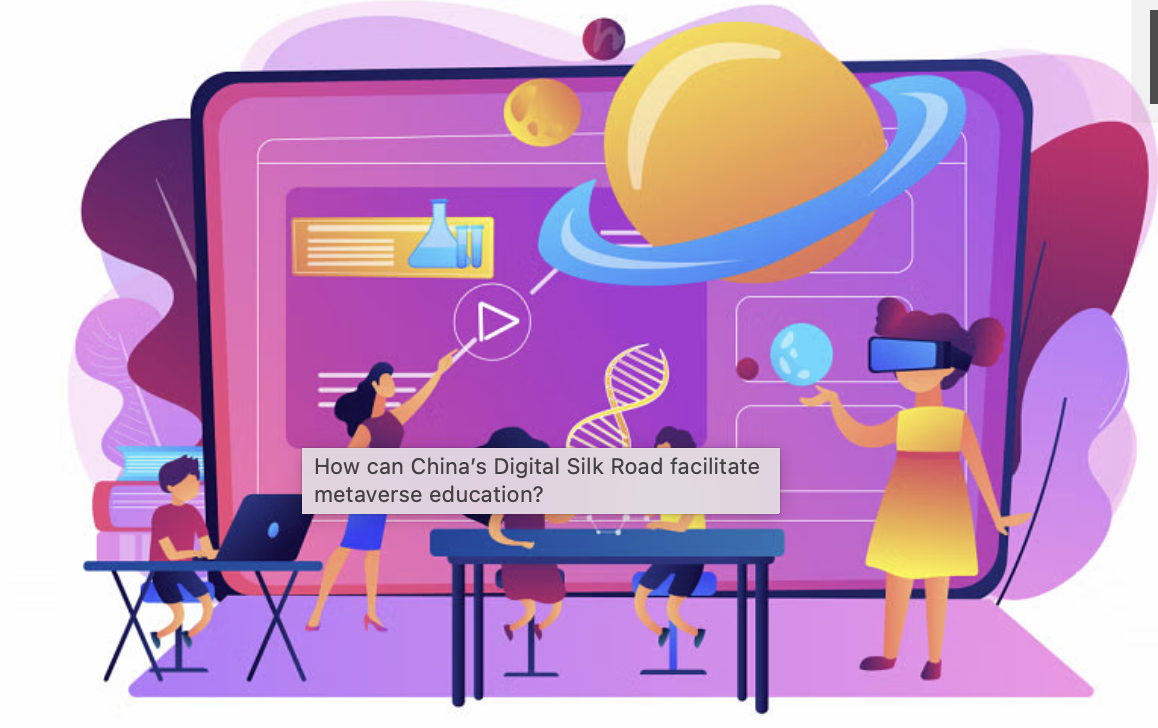How can China’s Digital Silk Road facilitate metaverse education?
The "Digital Silk Road" (DSR) was introduced in 2015 by an official Chinese government white paper, as a component of Beijing’s Belt and Road Initiative (BRI). The DSR represents China’s strategy for enhancing information exchanges and digital collaboration with emerging nations. DSR support is allocated to enhance beneficial countries’ networked communications, AI capabilities, cloud computing, e-commerce, mobile financial services (MFS), technological surveillance, smart cities, and high-tech sectors, among others. Around 40 countries, including a majority of the world’s developing nations, have already signed Memorandums of Understanding (MoU) in the DSR. The expanding reach of the DSR offers a chance to influence the technological initiatives of multiple nations, including the advancement of innovative educational systems like metaverse education.
A metaverse framework for education offers students the opportunity to go beyond reading and experience the facts and details hands-on. Metaverse technologies hold immense promise in revolutionising educational settings, lifting skilled trades, and opening up novel avenues for lifelong learning. The metaverse has the potential to transform the world into a virtual global school, however, there are significant challenges to adopting metaverse education, such as a lack of technology architecture and network infrastructure, and a dearth of learning management systems. Hence the DSR can make a significant contribution to advancing and broadening metaverse education by improving digital infrastructure, promoting technical cooperation, and enabling access to proficient educational materials.
The DSR prioritises the expansion of broadband networks, including optic fibre and 5G technologies, to accommodate the high velocity of data transfer needed for metaverse education. Furthermore, the allocation of resources towards cloud infrastructure facilitates the efficient storage and analysis of substantial volumes of data, which are crucial for creating engaging educational experiences within the metaverse. By committing to technical surveillance, Chinese technology firms can facilitate the broad accessibility of cost-effective virtual reality (VR) and augmented reality (AR) devices, hence expanding access to these technologies to prospective students and educational institutions.
Daily Star







